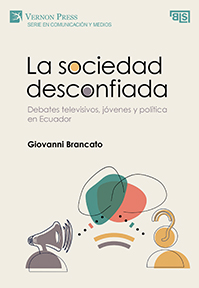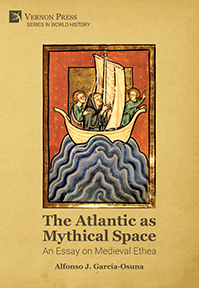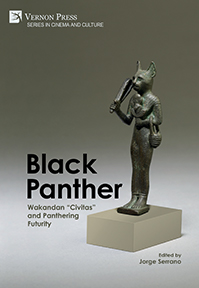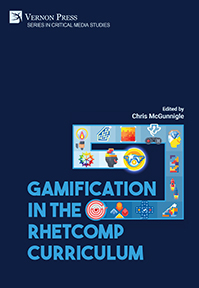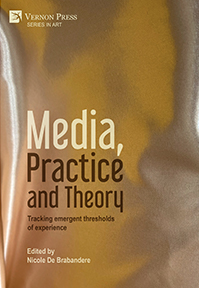Search
Browse
by Publication status
by Subject
Anthropology (26) Art (171) Business and Finance (38) Cognitive Science and Psychology (63) Communication and Journalism (51) Economics (116) Education (71) History (168) Human Geography (23) Interdisciplinary (43) Language and Linguistics (178) Law (16) Music Studies (18) Philosophy (222) Political Science and International Relations (127) Sociology (402) Statistics and Quantitative Methods (21)by Series
Series in Literary Studies (62) Series in Philosophy (57) Series in Education (49) Series in Sociology (42) Series in World History (31) Series in Politics (30) Bridging Languages and Scholarship (25) Series in Language and Linguistics (25) Cognitive Science and Psychology (20) Series in Philosophy of Religion (20) Series in American History (19) Series in Art (19) Critical Perspectives on Social Science (16) Series in Cinema and Culture (16) Curating and Interpreting Culture (15) Series on the History of Art (14) Series in Anthropology (13) Series in Critical Media Studies (13) Economics (13) Series in Business and Finance (12) Series in Music (12) Series in Performing Arts (9) Philosophy of Personalism (8) Series in Communication (8) Series in Law (8) Series in Economic Methodology (7) Series on Climate Change and Society (7) Classics in Economics (6) Series in Economic Development (6) Women's Studies (6) Philosophy of Forgiveness (5) Series in Built Environment (5) Series in Economic History (5) Series in Philosophy of Science (4) Series in Social Equality and Justice (4) Series on the History of Science (4) Serie en Sociología (3) Series in Contemporary History (3) Series in Creative Writing Studies (3) Series in Design (3) The Interdisciplinary Built Environment (3) Series in Heritage Studies (2) Series in Innovation Studies (2) Serie en Ciencias Políticas (1) Serie en Comunicación y Medios (1) Serie en Entorno Construido (1) Serie en Estudios Culturales (1) Serie En Estudios Literarios (1) Serie en Filosofía (1) Serie en Música (1) Series in Classical Studies (1) Series in Economics of Technological Change (1) Series in Philosophy of Race (1) Series in Urban Studies (1)by Language
English Spanishby Author
Browsing with filters

La sociedad desconfiada. Debates televisivos, jóvenes y política en Ecuador
Giovanni Brancato, Sapienza University of Rome, Italy
Availability: In stock
166pp. ¦ $42 £34 €39
Los jóvenes, la política y los medios de comunicación son los tres pilares que sostienen la investigación objeto de este volumen dedicado al estudio de los efectos producidos en las audiencias televisivas, en términos de confianza en la política y sus protagonistas, tras la exposición a contenidos mediáticos “conflictivos”. El libro intercepta un tema muy importante y de gran actualidad en tiempos en los que la sociedad se caracteriza por un sentimiento de cinismo, por una parte, y por la proliferación de fenómenos políticos populistas, por otra. Además, la elección de analizar el contexto político y mediático ecuatoriano cómo caso de estudio hace que este trabajo de investigación sea único entre las contribuciones académicas en el campo de los estudios e investigaciones al respecto en las ciencias de la comunicación y la sociología política. El volumen se divide en dos partes. La primera sección está dedicada a las relaciones entre los medios de comunicación, los ciudadanos y la política en la era de la desconfianza generalizada. En particular, se analizará la evolución de la comunicación política tras la aparición de la televisión y en los posibles efectos de los medios en los hábitos y prácticas informativas y política de los ciudadanos, centrándose en la sociedad ecuatoriana en los últimos veinte años. La segunda parte del libro presenta las fases de trabajo y los resultados de la investigación en campo llevada a cabo por el autor, caracterizada por un diseño cuasiexperimental, con el objetivo de analizar las dinámicas conflictivas típicas del debate en los talk shows y sus relaciones con los posibles efectos en las audiencias sobre el nivel de cinismo público.
The Atlantic as Mythical Space: An Essay on Medieval Ethea
Alfonso J. Garcia-Osuna, Hofstra University
Availability: In stock
298pp. ¦ $59 £44 €50
'The Atlantic as Mythical Space' is a study of medieval culture and its concomitant myths, legends and fantastic narratives as it developed along the European Atlantic seaboard. It is an inclusive study that touches upon early medieval Ireland, the pre-Hispanic Canary Islands, the Iberian Peninsula, courtly-love France and the pagan and early-Christian British Isles. The obvious and consequential ligature that runs throughout the different sections of this text is the Atlantic Ocean, a bewildering expanse of mythical substance that for centuries fueled the imagination of ocean-side peoples. It analyzes how and why myths with the Atlantic as preferential stage are especially relevant in pagan and early-Christian western Europe. It further examines how prescientific societies fashioned an alternate cosmos in the Atlantic where events, beings and places existed in harmony with communal mental structures. It explores why in that contrived geography these societies’ angels and monsters were able to materialize with wonderful profusion; it further analyzes how the ocean became a place where human beings ventured forth searching for explanations for what is essentially unknowable: the origins of the universe and the reason for our existence in it.
Black Panther: Wakandan “Civitas” and Panthering Futurity
Edited by
Jorge Serrano, University of Delaware
Availability: In stock
239pp. ¦ $87 £72 €82
This interdisciplinary academic study is for readers interested in film, media, and the comic book genre. Superhero theories are abundant, especially considering their use as a tool for coping with adversity, and some note that it is an integral part of American society, young formative minds, in particular. It is not just about learning morals but also seeing how an ideal society should function and look. There are works that review superheroes and theories about comic book series adaptions in film and text, but the writers in this compendium engage not only with the film and the intersectionality of women, Asian culture, Du Bois, and even Greek Ajax and others for comparison but also comparative analysis of works that capture African and African diasporic representation throughout various historical time periods. The anthology presents discourse that engages a variety of assessments that involve questions of positive and pejorative representation. Educators will find this a useful tool for undergraduate students as well as general audiences interested in this popular film/comic series.
Gamification in the RhetComp Curriculum
Edited by
Chris McGunnigle, Seton Hall University
Availability: In stock
334pp. ¦ $93 £77 €88
Gamification is an up and coming popular trend in all levels and types of education, including public and private schools, higher education, the military, the private sector, and elsewhere. Gamification introduces aspects of game design like teamwork, competition, rewards and prizes, storytelling, and more into lesson plan units. In many cases, actual games, whether it be Scrabble, Hangman, Candy Crush, Dungeons & Dragons, and many others, are adapted into educational tools. This chapter collection will specifically look at the use of gamification techniques in Freshmen Writing courses and related Composition, Writing and Rhetoric classes. Each chapter will provide sample gamified lessons supported by relevant scholarship in both Gamification Theory and Writing Studies.
Media, Practice and Theory: Tracking emergent thresholds of experience
Edited by
Nicole De Brabandere, McGill University
Availability: In stock
252pp. ¦ $87 £72 €82
This volume gathers research at the intersection of art and the interdisciplinary humanities to develop an understanding of media assemblages that insist on the generativity of their situatedness within ecologies of practice. These contributions propose media assemblages that enlarge the time and space for co-compositions between media and bodies that reshape subjective, perceptual, and affective registers of experience. Media assemblages include photography, performance, criticism, curation, installation, animation, collage, video and VR, as well as archival and somatic practices. Research as a form of practice is a key orientation in this volume since it offers a means of engaging the world-making proposition offered by Isabelle Stengers that practices are specified through irreducible entanglements that cause one to think, feel, and hesitate. The generative linkages between different disciplinary approaches for engaging research practice across the arts and humanities are favoured over disciplinary and media-based exclusivity. When practice is not posed as an intervention or counterpoint to scholarly research or in opposition to the discursive, differences emerge, not based on convention but through the situatedness of emergent insight. The goal is thus not to forward a reproducible formula for knowledge creation but to weave the conditions for utterances both within and in excess of discipline, convention, and establishment. How can research engender the making of communities between, across, and in excess of institutional frameworks through the emergent affinities, postures, and formats of evolving and inclusive forms of research? This volume is a valuable reference for researchers/practitioners within the arts and humanities as it exemplifies both critical and situated methods for developing interdisciplinary research as a means of transforming the terms of research itself.

